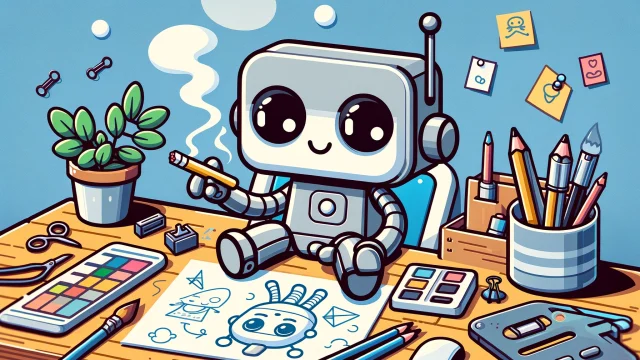Dragon Ball: The Evolution – A Detailed Review
Dragon Ball: The Evolution – A Detailed Review
When the beloved Dragon Ball franchise made its leap from anime and manga to live-action with Dragonball: Evolution, it sparked a great deal of excitement and anticipation among fans worldwide. However, when the movie finally hit theaters in 2009, it quickly became clear that this adaptation was not what many had hoped for. In this article, we will dive deep into the evolution of Dragon Ball: The Evolution, analyzing its plot, characters, reception, and what went wrong with this live-action interpretation of the iconic anime.
The Plot of Dragonball: Evolution
The premise of Dragonball: Evolution follows the familiar story of Goku, a young high school student who discovers that he is destined to find the seven Dragon Balls—magical orbs capable of granting any wish. As Goku embarks on his journey, he meets several other characters, including the fierce warrior Piccolo, his wise mentor Master Roshi, and his love interest, Chi-Chi. Together, they must stop the evil Piccolo from obtaining the Dragon Balls and using their power to conquer the world.
While the plot borrows from the Dragon Ball saga, the story takes significant liberties in an attempt to modernize and Americanize the narrative for Western audiences. This departure from the original source material was one of the first signs that the film might struggle with its fanbase.
The Characters of Dragonball: Evolution
One of the most controversial aspects of Dragonball: Evolution was its casting choices, which were widely criticized by fans of the original series.
- Goku (played by Justin Chatwin): In the anime, Goku is known for his cheerful personality and indomitable spirit, but in the live-action film, Goku’s character was portrayed as a typical high school teen, complete with teenage angst. Fans were disappointed with how the character’s carefree nature was lost in the adaptation, and Chatwin’s portrayal did not resonate with the audience.
- Master Roshi (played by Chow Yun-fat): Master Roshi, the wise and comedic martial arts master in the anime, was given a more serious role in the film. While Chow Yun-fat’s performance was admirable, it didn’t match the quirky, playful nature that fans expected from this iconic character.
- Piccolo (played by James Marsters): One of the few characters to remain faithful to his original form, Piccolo in the movie is portrayed as a powerful and menacing villain. However, his backstory and motivations were altered, which left many fans feeling disconnected from this pivotal antagonist.
- Chi-Chi (played by Jamie Chung): Chi-Chi was re-imagined as a modern-day high school student, far from her martial arts roots in the original series. While Chung’s performance was serviceable, it felt like a far cry from the strong-willed and fierce Chi-Chi fans were used to.
The Reception and Criticism of Dragonball: Evolution
Upon its release, Dragonball: Evolution faced severe backlash from both critics and fans. The movie was criticized for several reasons, including:
- Departure from the Source Material: Fans were upset by the drastic changes made to the plot and characters. Many felt that the movie deviated too far from the anime’s essence, stripping away the charm and humor that had made Dragon Ball such a beloved series.
- Weak Special Effects: Despite a hefty budget, the special effects were widely considered subpar. The fight scenes, a major part of the Dragon Ball franchise, felt underwhelming and lacked the high-energy choreography that fans had come to expect.
- Poor Casting Choices: The casting of non-Asian actors in key roles was another point of contention. Fans argued that the decision to cast Hollywood stars instead of Japanese or Asian actors was a sign of the film’s cultural disconnect from the original material.
- Lackluster Action: The movie’s fight scenes, which are a hallmark of the Dragon Ball franchise, were criticized for being slow, uninspired, and lacking the intense energy that made the anime so thrilling. In the anime, battles are dynamic and explosive, but in the live-action film, the action sequences fell flat.
- Inconsistent Tone: The film’s tone was often described as awkward and inconsistent. While Dragon Ball is known for its humor, action, and occasional serious moments, Dragonball: Evolution seemed to struggle in balancing these elements, resulting in an overall sense of tonal dissonance.
Legacy and Impact
Despite its failure at the box office and among fans, Dragonball: Evolution left a lasting mark on the franchise. For better or worse, the film became a benchmark for how not to adapt a beloved anime into live-action. It served as a learning experience for future anime-to-live-action adaptations, demonstrating the importance of respecting the source material, casting the right actors, and understanding the cultural nuances of the original work.
Interestingly, Dragonball: Evolution remains a cult film of sorts, with fans revisiting it for its unintentional humor and missteps. Many regard it as an odd experiment in the history of anime adaptations, but it also serves as a reminder of the challenges faced when translating such a dynamic and beloved series into a different medium.
Conclusion: Dragonball: Evolution’s Place in History
While Dragonball: Evolution may never be considered a success in the eyes of most fans, it remains a noteworthy chapter in the history of live-action anime adaptations. The film serves as a cautionary tale for future productions, reminding creators that when adapting a beloved series, it’s essential to understand what made the original work special and to stay true to its core.
For Dragon Ball fans, the movie may have been a disappointing experiment, but the franchise’s true legacy continues to thrive in its manga, anime, and video games. Dragonball: Evolution may not have been the film many fans hoped for, but it certainly had an impact, even if that impact was mostly negative.
As the Dragon Ball franchise continues to evolve with newer generations of fans, Dragonball: Evolution serves as a reminder of the importance of staying faithful to what makes a story truly iconic.

